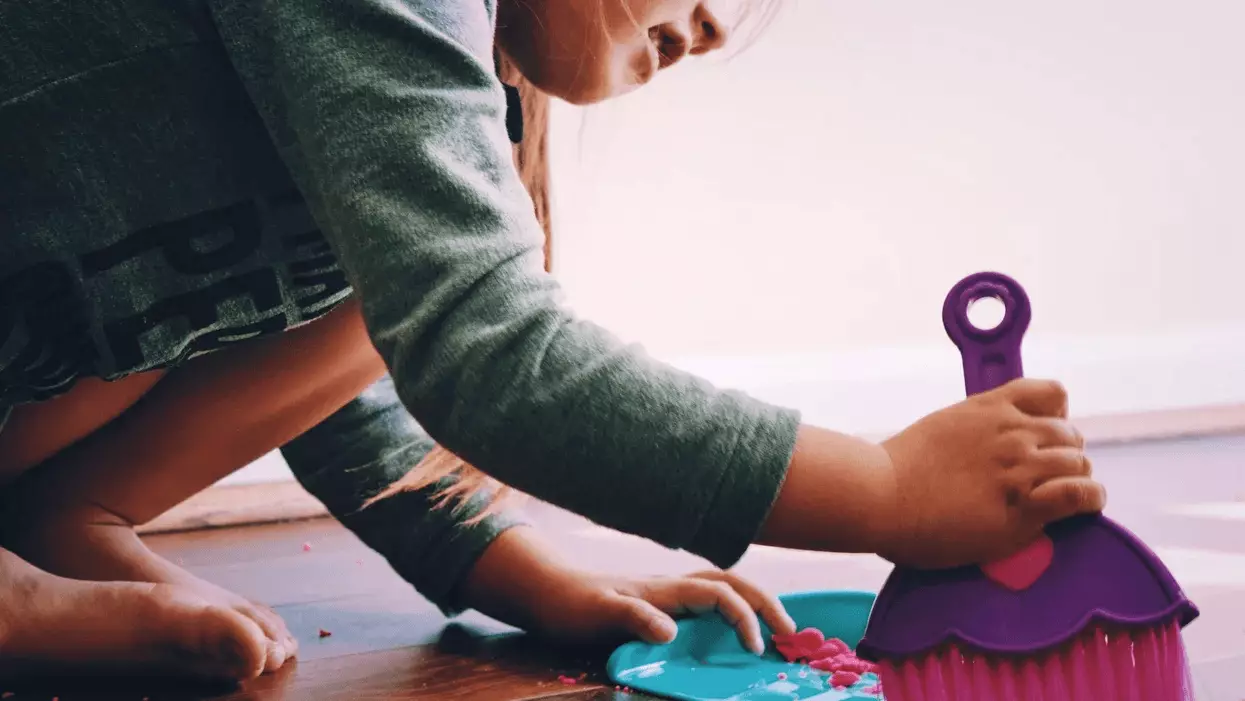The stereotype of toddlers being little whirlwinds of chaos often overshadows a fundamental truth: they are incredibly eager to help. While it’s easy to get frustrated by their seemingly endless mess-making, parents might find that these tiny hands are ready to assist with household tasks if given the chance. Allowing toddlers to participate in chores may not always yield the most efficient results, but it cultivates a sense of pride, responsibility, and inclusivity in them. Most importantly, engaging toddlers in such activities can turn daily frustrations into bonding experiences, ultimately making life a bit easier for caregivers.
When looking over a household to-do list, parents should identify the tasks that their toddlers can help with. It’s essential to remember that involvement, no matter how small, means the world to young children. This collaborative approach fosters a sense of belonging and purpose in them. Here are some crucial aspects to consider when involving toddlers in household chores.
First, encourage them to follow their interests. Does your toddler show curiosity about what’s happening in the kitchen? Is their little mop or broom something they want to play with? By connecting chores to their interests, parents not only spark engagement but also introduce children to the concept of work as something enjoyable.
To begin, unloading the dishwasher can be a fun and manageable task for youngsters. While an older child may be able to handle sharp or fragile items, younger ones can simply hand dishes over to an adult. This fosters careful handling habits while emphasizing safety in the kitchen. Moreover, setting up a low cabinet for your child’s dishes enables them to take ownership of their own utensils, creating a sense of independence that is invaluable.
Another task ripe for toddler involvement is laundry. Children create plenty of laundry themselves, making this chore an excellent avenue for participation. Toddlers can assist by carrying folded laundry to specific rooms or even matching socks—a task that feels rewarding and structured. If a child can access their clothing storage, they can learn to put their clothes away, further reinforcing a sense of responsibility.
Cleaning surfaces can also be framed as a game. By providing toddlers with a tiny broom and dustpan, parents can invite them to help tidy up after meals. This keeps the cleaning process engaging for the child while ensuring that some sort of cleanup is happening, even if it’s less than perfect. When it comes to other tasks, window washing is an exciting way for toddlers to experience instant results from their efforts. Using safe cleaning materials, parents can show children how to spray and wipe, promoting an essential life skill while getting fun results.
Outdoor tasks, such as washing the family car, are another wonderful activity that promotes teamwork and muscle development. Toddlers will love splashing around with soap and water, while simultaneously learning the importance of caring for their belongings by cleaning their bikes and toys.
Even meal preparation can become a shared experience. Encourage your toddler to dump pre-measured ingredients, mix, or even wash vegetables with child-safe utensils. Even if they lose interest and wander off, involving them in the process ensures they feel included in family meals, creating a more nurturing environment that prioritizes quality time over speed in the kitchen.
Don’t overlook the simple task of watering plants, which can be a great way for toddlers to contribute independently. By teaching them to check the moisture level of soil and fill a watering can, they take ownership over nurturing living things, fostering a nurturing attitude as well.
Involving toddlers in caring for household pets can help instill a sense of responsibility. Kids love animals, and participating in feeding or grooming tasks can enrich their understanding of empathy and care for other beings. Similarly, if pets aren’t part of the household, filling bird feeders with seed presents an opportunity for toddlers to play an active role in caring for local wildlife.
Dusting is another chore that toddlers can tackle enthusiastically. Tasking them with easy-to-reach surfaces, like low shelves or baseboards, gives them immediate feedback and an instant sense of accomplishment. Additionally, parents can invite toddlers to participate in DIY projects around the house, providing them with small jobs like passing tools or holding items. This approach not only introduces them to practical skills but shows how exciting and satisfying it can be to contribute to the home.
Final Thoughts
Toddlers are not merely destructive forces; they are eager participants ready to lend a hand. By inviting them into the work of the household, parents help instill vital life skills and a sense of responsibility. Although some tasks may take longer with toddlers involved, the benefits often outweigh the inconveniences. Engaging them at this early stage sets the groundwork for future teamwork, cooperation, and respect for shared spaces, ultimately contributing to their growth as capable, considerate individuals.

